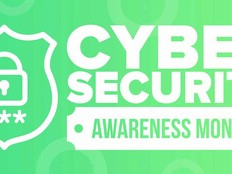Apple’s Encryption Stance Creates Hurdles for Feds
Apple came out strongly against a federal court order that would force the company to help the FBI break the encryption on an iPhone that was used by one of the shooters in the terrorist attack in San Bernardino, Calif., that killed 14 people in December.
In a statement on Apple's website, issued a day after the court order was approved, Apple CEO Tim Cook said that while Apple was "shocked and outraged by the deadly act of terrorism" and has "great respect for the professionals at the FBI" Apple has worked with in the aftermath of the attack, "the U.S. government has asked us for something we simply do not have, and something we consider too dangerous to create. They have asked us to build a backdoor to the iPhone."
As The Washington Post reported: "The order, signed Tuesday by a magistrate judge in Riverside, Calif., does not ask Apple to break the phone’s encryption but rather to disable the feature that wipes the data on the phone after 10 incorrect tries at entering a password. That way, the government can try to crack the password using 'brute force' — attempting tens of millions of combinations without risking the deletion of the data."
Cook said the "the FBI wants us to make a new version of the iPhone operating system, circumventing several important security features, and install it on an iPhone recovered during the investigation. In the wrong hands, this software — which does not exist today — would have the potential to unlock any iPhone in someone’s physical possession."
Cook added: "The government is asking Apple to hack our own users and undermine decades of security advancements that protect our customers — including tens of millions of American citizens — from sophisticated hackers and cybercriminals. The same engineers who built strong encryption into the iPhone to protect our users would, ironically, be ordered to weaken those protections and make our users less safe."
According to The New York Times, when "asked about Apple’s resistance, the Justice Department pointed to a statement by Eileen M. Decker, the United States attorney for the Central District of California: 'We have made a solemn commitment to the victims and their families that we will leave no stone unturned as we gather as much information and evidence as possible. These victims and families deserve nothing less.'"
The growing emphasis on customer privacy among tech companies could make it more difficult for the FBI and other federal agencies to get decrypted mobile data as part of investigations. The continuing debate and Apple’s opposition to the court order will force agencies to grapple with this new atmosphere.








